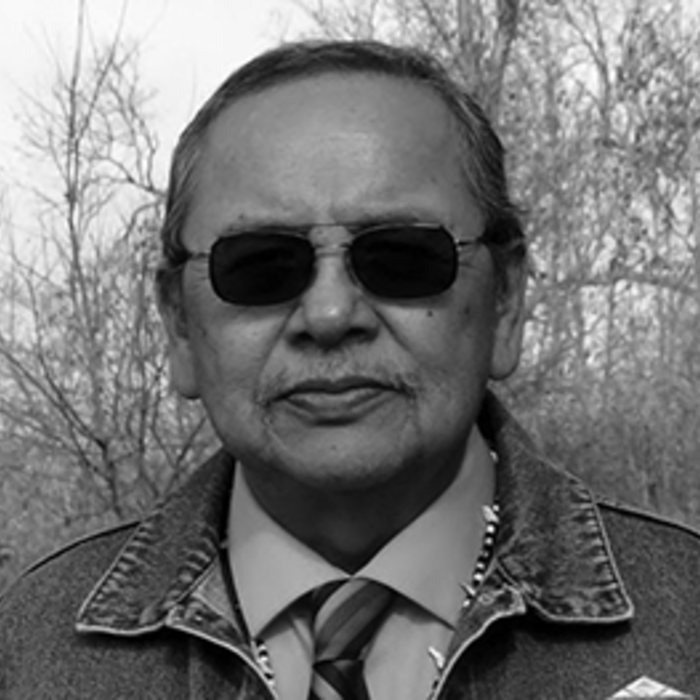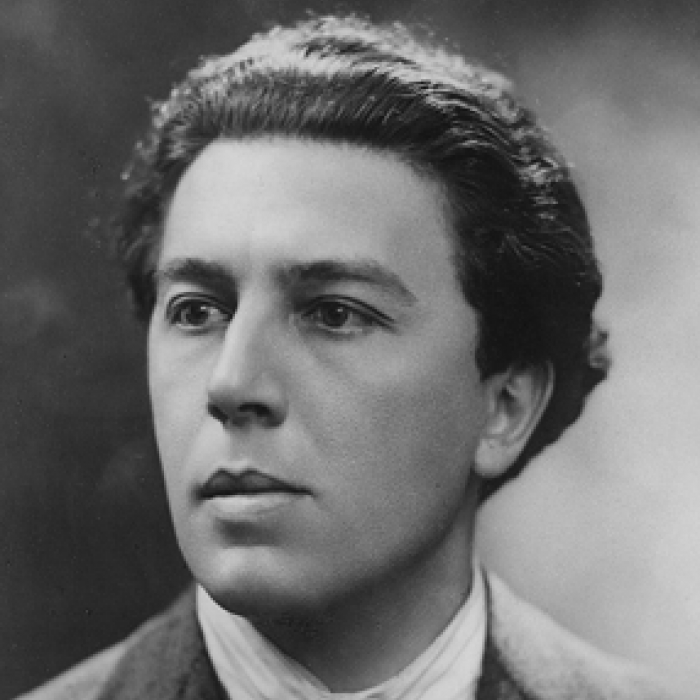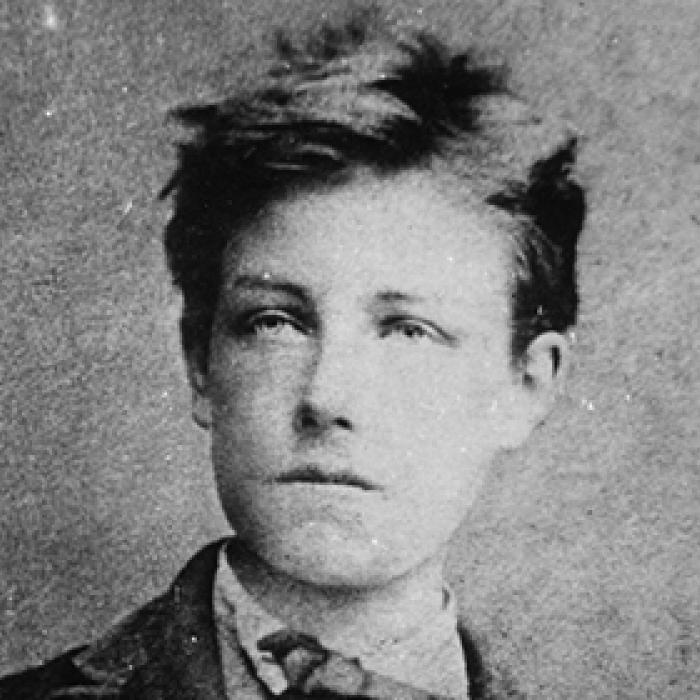W. S. Merwin
William Stanley Merwin was born in New York City on September 30, 1927. He was raised in Union City, New Jersey, and Scranton, Pennsylvania, as the son of a Presbyterian minister, and began writing hymns as a child. Merwin attended Princeton University on a scholarship, where he was a classmate of Galway Kinnell, and studied poetry with the critic R. P. Blackmur, and his teaching assistant, John Berryman.
After graduating in 1948, Merwin spent an additional year at Princeton studying Romance languages, a pursuit that would later lead to his prolific work as a translator of Latin, Spanish, and French poetry. He soon married his first wife, Dorothy Jeanne Ferry, and began writing verse plays and working as a tutor to the children of wealthy families. He traveled throughout Europe and, in 1950, took a position in Majorca, Spain, as an instructor to the son of Robert Graves. While there, he met Dido Milroy, whom he eventually married after his first marriage ended.
Merwin’s first collection, A Mask for Janus (Yale University Press, 1952), was selected by W. H. Auden for the Yale Series of Younger Poets. The collection was praised by Auden for its technical virtuosity, and, with its focuses on classical imagery and myth, bore the influences both of Graves and the medieval poetry Merwin was translating.
After leaving Majorca, Merwin remained in Europe, living in London and the south of France for several years. In 1956, he received a fellowship from the Poets’ Theater in Cambridge, Massachusetts and moved back to the United States. While in Boston, he entered the circle of writers that surrounded Robert Lowell and decided to concentrate on poetry. His books written during this time, Green with Beasts (Alfred A. Knopf, 1956) and The Drunk in the Furnace (Macmillan, 1960), demonstrate the beginning of a significant shift in style and perspective. A New York Times review of The Drunk in the Furnace noted “the earthiness, the grittiness, the humane immediacy that informs the finest of these poems.”
Merwin and Dido soon moved back to Europe and lived in London and the South of France. They became close friends with Sylvia Plath and Ted Hughes during this time. In 1968, Merwin and Dido separated, and he began living for part of the year in New York.
In 1967, Merwin published the critically acclaimed volume, The Lice (Atheneum, 1967), followed by The Carrier of Ladders (Atheneum, 1970), for which he received the Pulitzer Prize. In a letter to the New York Review of Books, he declared his intention to donate the $1,000 prize to antiwar causes as a protest against the Vietnam War. Auden responded through his own letter that the Pulitzer judges were not a political party and had no ties to American foreign policy.
In 1976, Merwin moved to Hawaii to study with the Zen Buddhist master Robert Aitken. There, he married Paula Schwartz in a Buddhist ceremony in 1983. Merwin settled in Maui, in a home that he helped design and build, surrounded by acres of tropical forest that he restored after years of overuse. The Buddhism and environmentalism that Merwin devoted himself to while in Hawaii influenced his later work.
Over the course of his long career, Merwin published over twenty books of poetry. His recent collections include Garden Time (Copper Canyon Press, 2016); The Moon Before Morning (Copper Canyon Press, 2014); The Shadow of Sirius (Copper Canyon Press, 2008), which won the 2009 Pulitzer Prize; Migration: New & Selected Poems (Copper Canyon Press, 2005), which won the 2005 National Book Award; The River Sound (Alfred A. Knopf, 1999), which was named a New York Times Notable Book of the Year; Flower and Hand: Poems 1977–1983 (Copper Canyon Press, 1997); and Travels (Alfred A. Knopf, 1993), which received the Lenore Marshall Poetry Prize. He also published nearly twenty books of translation, including Collected Haiku of Yosa Buson (Copper Canyon Press, 2013), with Takako Lento; Sir Gawain and the Green Knight (Alfred A. Knopf, 2004); Dante’s Purgatorio (Alfred A. Knopf, 2000); and volumes by Federico García Lorca and Pablo Neruda. His numerous plays and books of prose include Unchopping a Tree (Trinity University Press, 2014); The Book of Fables (Copper Canyon Press, 2007), a collection of his short prose; Summer Doorways (Counterpoint, 2006), a memoir of his childhood; and The Lost Upland (Alfred A. Knopf, 1992), his memoir of life in the south of France.
Most recently, Merwin received the 2014 Harold Morton Landon Translation Award from the Academy of American Poets, for his Selected Translations (Copper Canyon Press, 2013). About W. S. Merwin’s work, judge David Hinton said:
W. S. Merwin’s art is ravenous, and this award celebrates that hunger. To translate is to inhabit another voice, which in turn enlarges one’s horizons as a writer; and Merwin’s huge Selected Translations represents a lifetime spent doing just that: feeding his own art with other voices. The book is a museum of world poetry, collecting artifacts from a vast range of cultures and times. This year, in addition to the Selected Translations, Merwin also published a voluminous translation from one of Japan’s greatest classical poets, a major addition to his world-poetry museum: Collected Haiku of Yosa Buson. And so continues Merwin’s lifelong gift to our hunger for other voices.
His other honors include the Academy of American Poets Fellowship, the Aiken Taylor Award for Modern American Poetry, the Bollingen Prize, the Governor’s Award for Literature of the State of Hawaii, the Lannan Literary Award for Lifetime Achievement, the Lila Wallace-Reader’s Digest Writers’ Award, the Lenore Marshall Poetry Prize from the Academy of American Poets, the PEN Translation Prize, the Ruth Lilly Poetry Prize, the Shelley Memorial Award, the Wallace Stevens Award from the Academy of American Poets, and the Zbigniew Herbert International Literary Award, as well as fellowships from the Guggenheim Foundation, the National Endowment for the Arts, and the Rockefeller Foundation.
A former Chancellor of the Academy of American Poets, Merwin also served as poetry consultant to the Library of Congress and as poet laureate of the United States from 2010 to 2011. He died on March 15, 2019.






